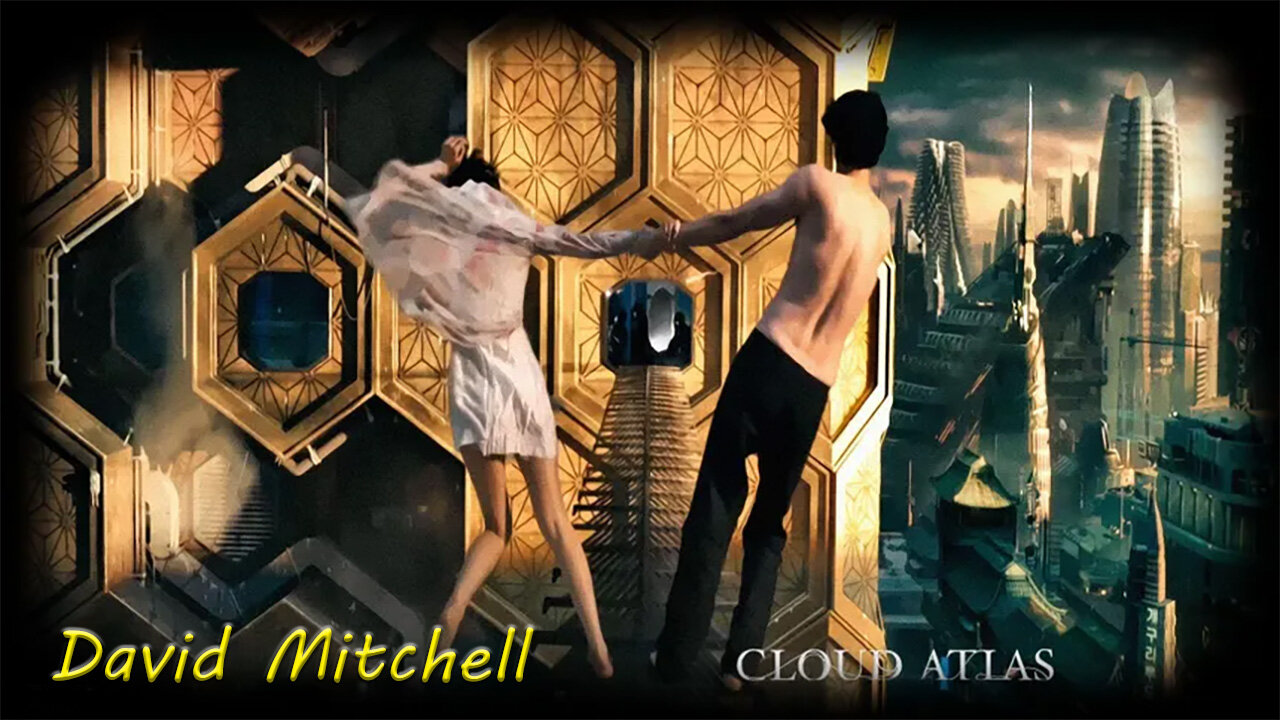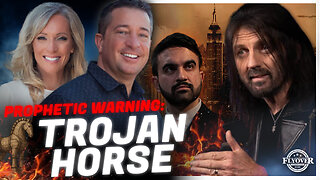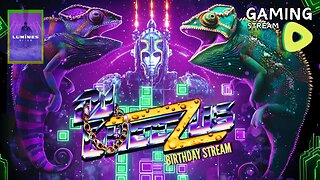Premium Only Content

'Cloud Atlas' (1994) by David Mitchell
David Mitchell’s, 'Cloud Atlas', is one of the most structurally audacious and thematically ambitious novels of the early twenty-first century. Composed as a chain of six nested narratives spanning centuries—from a nineteenth-century Pacific voyage to a far-future post-apocalyptic world—it is at once a formal experiment, a meditation on human recurrence, and a moral inquiry into the cycles of power that shape civilization. Beneath its intricate architecture, Mitchell explores a single, persistent question: whether humanity can evolve ethically, or whether exploitation and domination are our inescapable inheritance.
At first glance, 'Cloud Atlas' seems a dazzling exercise in genre mimicry. Each story imitates a distinct literary mode: the seafaring journal of Adam Ewing recalls Melvillean adventure; the letters of Robert Frobisher evoke modernist self-consciousness; Luisa Rey’s investigative thriller channels 1970s conspiratorial pulp; Timothy Cavendish’s comic memoir provides contemporary farce; Sonmi-451’s interrogation transcript belongs to dystopian science fiction; and Zachry’s oral tale of a ruined Earth reverts to myth. Yet Mitchell’s mimicry is not parody. It is an act of literary ventriloquism that reveals the continuity of human motives beneath the shifting surfaces of language and form. The book becomes a palimpsest of storytelling itself, suggesting that narrative is the connective tissue of moral experience.
Structurally, the novel unfolds like a symmetrical arch: each story interrupts the next until the central dystopia of Sonmi-451, after which the sequence reverses, completing the unfinished halves in reverse order. This pattern—often compared to a musical fugue or a matryoshka doll—creates a rhythm of anticipation and return. Mitchell thus turns narrative itself into an allegory of historical repetition: each age inherits the spiritual residue of its predecessors, distorted but recognizable. The result is both exhilarating and unsettling. Readers experience time not as a line but as an expanding echo chamber in which deeds reverberate across centuries.
Morally, 'Cloud Atlas' charts the confrontation between predation and empathy. From colonial exploitation in Ewing’s diary to corporate totalitarianism in Sonmi’s future, the same dynamic recurs: the powerful consume the weak, and the ideal of justice flickers against overwhelming appetite. Mitchell’s phrase “the weak are meat the strong do eat” becomes the novel’s dark refrain. Yet he does not succumb entirely to cynicism. Acts of compassion—Frobisher’s artistic devotion, Sonmi’s rebellion, Ewing’s late awakening—suggest that moral consciousness, though fragile, can endure through cultural decay. It is this thread of ethical memory that binds the book’s far-flung lives into a single “cloud atlas,” a constellation of souls perpetually rising and falling through time.
Stylistically, Mitchell’s prose is supple and mimetic, adapting to each genre with uncanny precision. His command of diction and rhythm allows each voice to feel fully inhabited, yet the underlying sensibility—the awareness of moral consequence, the tension between beauty and brutality—remains constant. The novel’s density rewards rereading: motifs such as birthmarks, recurring phrases, and musical structures function less as metaphysical clues than as emotional harmonics, reminding us that identity may be less linear than cyclical.
Some critics have found 'Cloud Atlas' overly schematic, its moral architecture too explicit, its cleverness verging on contrivance. There is some truth in that charge. Yet its boldness is inseparable from its power. Mitchell manages to fuse postmodern playfulness with genuine moral gravity, a combination rare in contemporary fiction. The novel refuses both despair and easy redemption. It suggests instead that progress, if it exists, is not historical but personal—a matter of whether individuals, in each age, can resist the temptation to consume one another.
In the end, 'Cloud Atlas' is less a novel about time travel or reincarnation than about moral recursion: how our smallest choices ripple forward, reappearing in other guises, shaping futures we will never see. Its architecture is a metaphor for human continuity; its message, for all its complexity, is disarmingly simple: the world we inherit is the one we make, again and again.
-
 3:29:04
3:29:04
TimcastIRL
5 hours agoTrump Calls For DEATH Of Democrats For Sedition, White House WALKS IT BACK | Timcast IRL
221K98 -
 24:13
24:13
Jasmin Laine
9 hours agoPoilievre Can’t Stop LAUGHING—Liberals IMPLODE After U.S. Ambassador Calls Them Out
16.6K19 -
 4:04:31
4:04:31
SpartakusLIVE
6 hours agoTexas FARMBOY turned WZ PRO turned REDSEC HERO turned ARC LOOT GOBLIN
41.5K -
 2:34:18
2:34:18
Mally_Mouse
5 days ago🎮 Throwback Thursday! Let's Play: Kingdom Hearts 1 pt. 4
33.9K4 -
 25:14
25:14
Stephen Gardner
4 hours agoCLINTONS PANIC AS ARREST CALLS EXPLODE – Scott Jennings GOES OFF! 😱
30.8K23 -
 LIVE
LIVE
DLDAfterDark
3 hours ago $1.18 earnedThe AR15 BurnDown That Will Leave You Speechless!
246 watching -
 1:48:12
1:48:12
megimu32
3 hours agoON THE SUBJECT: Throwback Thursday | Wheel of Nostalgia Chaos!
27.1K7 -

Flyover Conservatives
23 hours agoTrojan Horse in the Big Apple? Prophetic Warning w/ Robin D. Bullock | FOC Show
32.6K7 -
 1:31:48
1:31:48
Precision Rifle Network
1 day agoS5E6 Guns & Grub - The Boys Are Back!
15.5K6 -
 LIVE
LIVE
SynthTrax & DJ Cheezus Livestreams
4 days agoLumines - Arise - DJ Cheezus Birthday Stream
165 watching